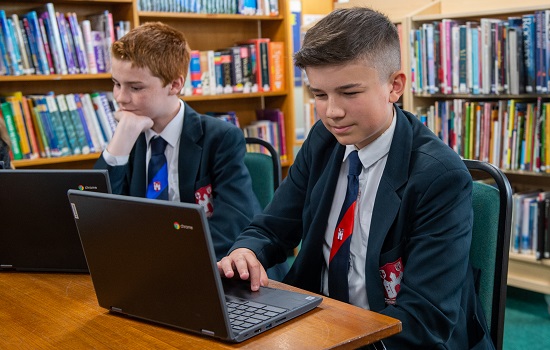Why should I study computer science?If you want to learn to program but have always been afraid to ask, then this is the course for you. If you have some programming skills and want to develop these, then this is an essential course as you will create real-world solutions. In Computer Science, you can learn the key computing ideas and the basics of programming. We will use Microsoft Visual Basic, which is a professional programming environment, to firstly create simple programs to solve problems. We will then use more advanced techniques to create Windows-based solutions. Throughout this course, we will look at different topics ranging from hardware to graphic and sound files. This will give you an understanding of, not only the programming aspects of a computer, but we will delve into the hardware, looking at the different components in detail such as the Central Processing Unit, clock speeds and cache. What will I study?
|
|
Are there any field trips or enrichment opportunities?
We have previously visited an Amazon Warehouse to see how the goods you buy from the comfort of your sofa are delivered to your door.
How will I be assessed?
The exam board for Computer Science is AQA (GCSE 9-1) and assessment is 100% by examination at the end of the two-year course.
You will also complete a non-examinable assessment task which allows you to demonstrate what you have learned and produce an application to solve a complex real-world problem.
Paper 1: Computational thinking and problem solving
- Topics covered: Computational thinking, code tracing, problem-solving and programming concepts
- Written exam: 2 hours
- 90 marks - 50% of GCSE
Paper 2: Computing concepts
- Topics covered: data representation and computer systems, computer networks, cyber security and ethics, relational databases
- Exam duration: 1 hour 45 minutes
- 90 marks - 50% of GCSE
What future career prospects does this course give me?
The course has links with Microsoft Technology Associate certifications to give industry-recognised skills. It gives a thorough grounding in computing, creating opportunities for you to move on to A levels, vocational courses, industry-recognised IT qualifications and employment. It also allows progress in other areas such as technology, science, engineering and the creative industries.
What are the next steps?
Should you wish to choose computer science, you will need to add it as the main choice in the Option 2 box. If you have any further questions about this course, please contact our Head of Maths and Computing, Mr Hughes, at




